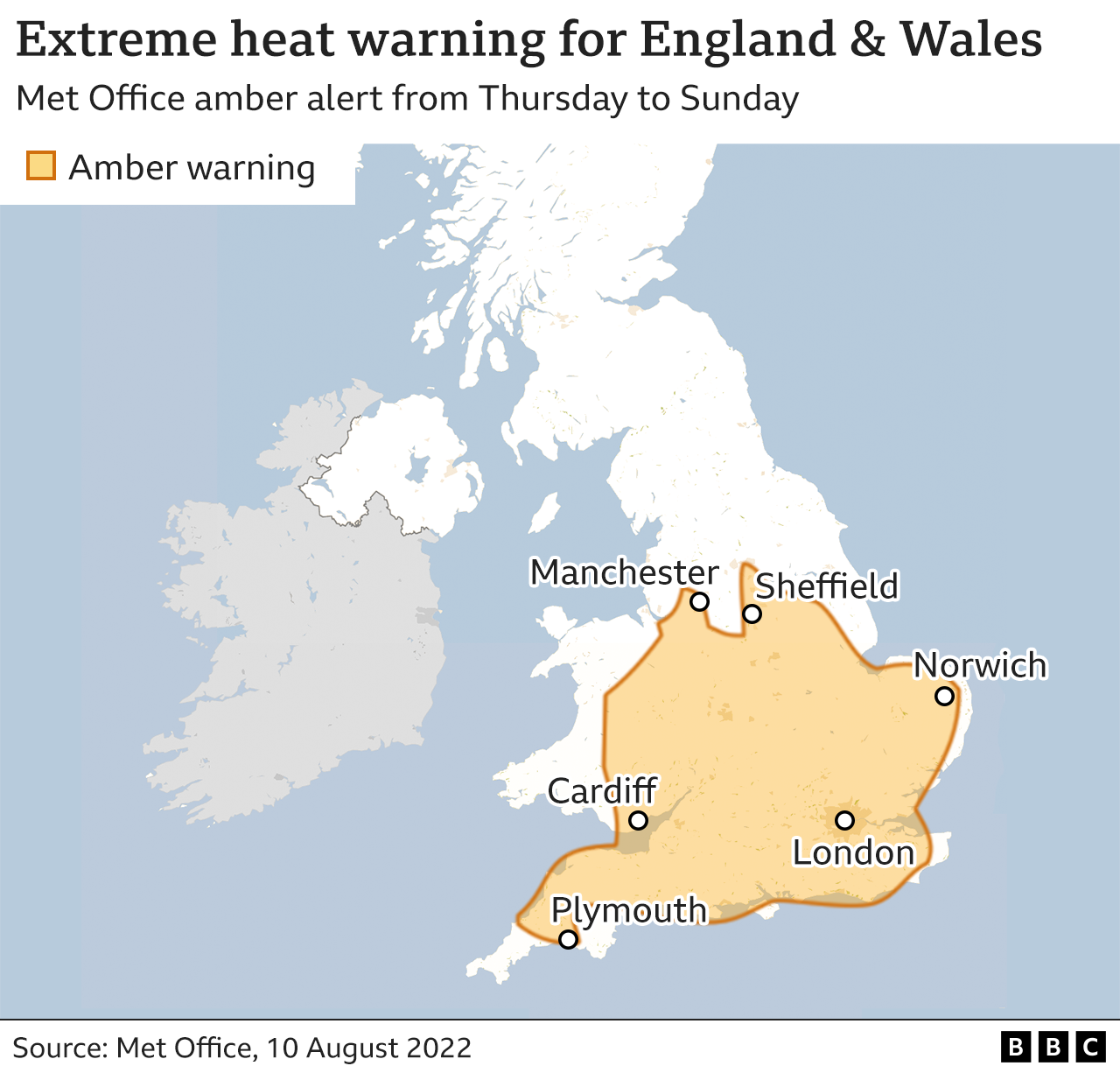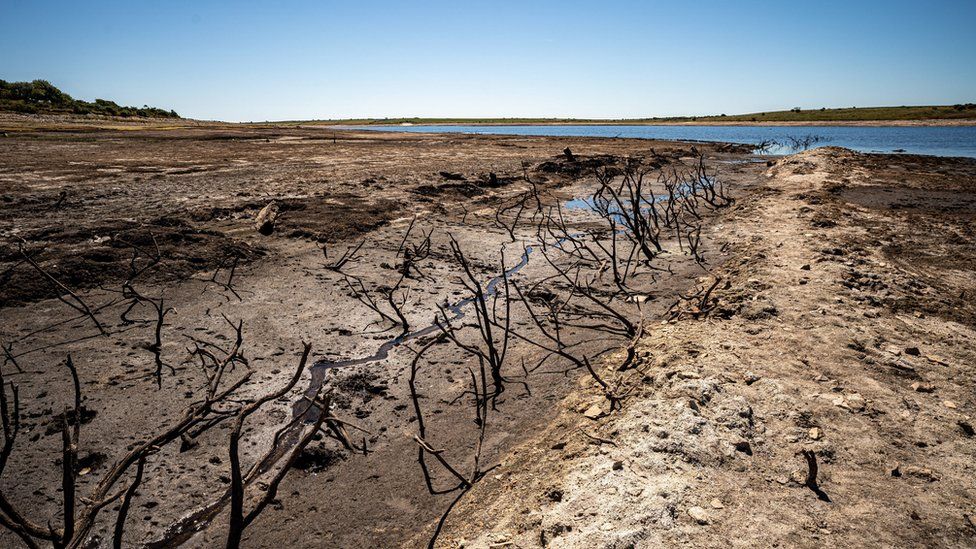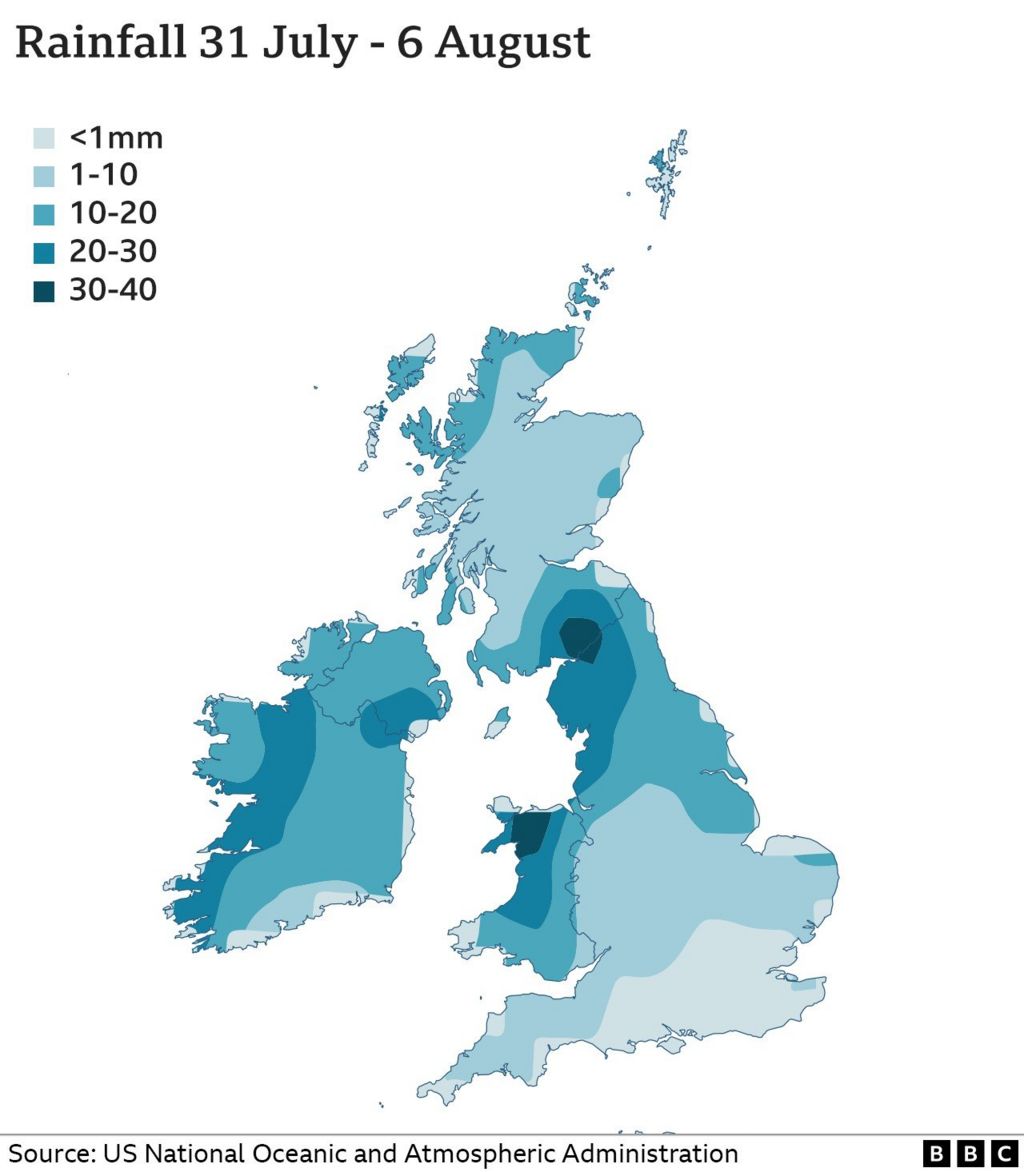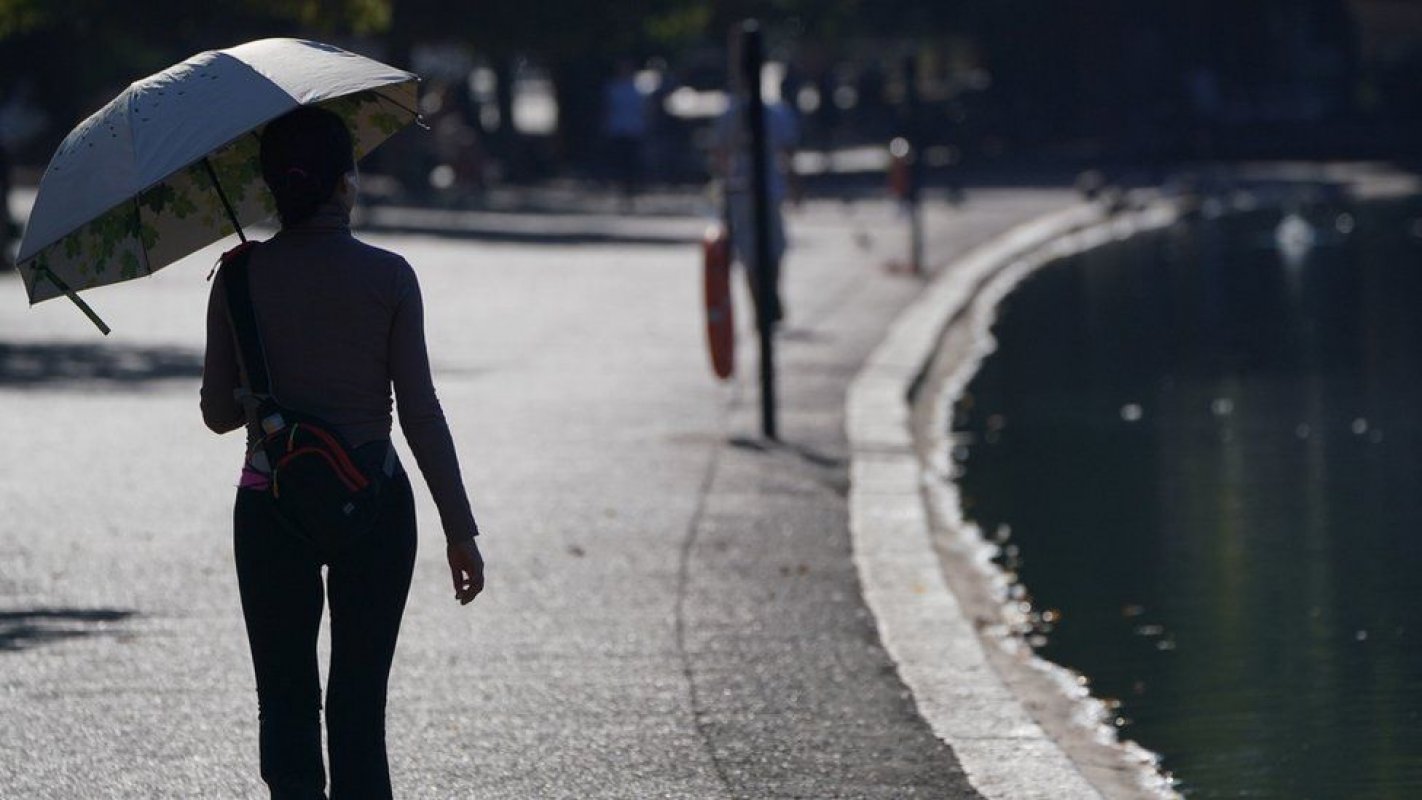The Met Office alert for southern and central England and parts of Wales runs from midnight on Thursday until Sunday.
It has also issued its highest alert for fire severity over the weekend, warning there is an "exceptional" risk of blazes spreading in many places.
The highest temperature on Thursday was 34.2C, at Wiggonholt in West Sussex.
Firefighters have urged the public to help them prevent fires.
London Fire Brigade assistant commissioner Jonathan Smith said he wanted to avoid scenes in July "where people lost their homes and livelihoods".
"In the first week of August last year, we attended 42 grassland and wildland fires, the same week this year we've attended 340," he said.
"Please don't barbecue in open spaces or balconies, throw your rubbish away safely and put your cigarettes out properly."
Mr Smith also warned people against using barbecues on balconies, saying they could lead to hot ash moving "very quickly".
In some areas, wildfires have broken out due to the heat. In Ryton, Gateshead, firefighters spent more than 24 hours tackling a fire which started in a field.
While the record-breaking temperatures seen in July, when the mercury topped 40C (104F) for the first time, are not expected this week, the heat in some areas could get close to local or regional records.
"Temperatures won't be as high. But the big difference with this current heatwave is that it's much more prolonged," said BBC Weather forecaster Matt Taylor.
"We've already seen temperatures above 30C every day this week - Monday, Tuesday and Wednesday - and that will continue until Sunday."
Temperatures could reach 35C and peak at 37C in some areas between the Midlands and London, he added.
They are also forecast to stay above 33C in some parts of south Wales over the next few days. St Athan recorded a high of 33.2C on Thursday.

The high temperatures and dry conditions have also been causing problems across Europe - with more than 1,000 firefighters battling a "monster" wildfire in France that has destroyed nearly 7,000 hectares of forest.
The Met Office's fire severity index, which assesses how severe a blaze could become, is currently "very high" for most of England and Wales.
This will rise to "exceptional" - the highest level of risk - for parts of England and Wales by the weekend, while a warning for "very high" risk of wildfires across southern and eastern Scotland has been put in place until Monday.
The period between January and June this year was the driest in England in 46 years, prompting warnings about the effects on agriculture, nature and wildlife.
More than three inches of extra rain, in addition to what would normally be expected, is needed to overcome the dry conditions in parts of southern England, but no rain is forecast any time soon.
Analysis by the UK Centre for Ecology and Hydrology found low or even exceptionally low river flows and groundwater levels were likely to continue for the next three months in southern England and Wales.
Water companies are being urged to protect essential supplies into a dry autumn, and three firms have already implemented hosepipe bans.
South East, Southern and Welsh Water customers cannot use hosepipes to water lawns or plants, clean cars or fill paddling pools, while Thames Water expects to bring in a ban "in the coming weeks".
The company, with 15 million customers across London and the Thames Valley, was forced on Wednesday to hand out bottled water for residents in the village of Northend in Oxfordshire after supplies were disrupted due to a technical issue at a local reservoir.
Elsewhere, drinks breaks are to be implemented during Premier League fixtures this weekend to help footballers in the hot weather.

Water companies have faced criticism for bringing in hosepipe bans while just under 3 billion litres (660 million gallons) of water is lost to leaks every day in England and Wales - equivalent to 1,180 Olympic swimming pools.
Stuart Colville from Water UK said there were "hundreds of people out today and across the week" fixing leaks, adding that leakage was currently at its lowest level on record.
He said it was a "constant battle" fixing leaks, particularly in hot and dry conditions when soil dries, moves and puts pressure on pipes "causing additional bursts".
Speaking on BBC Breakfast, Mr Colville said it was looking "increasingly inevitable" that the Environment Agency would declare a drought in England.
An official drought is expected to be declared on Friday, according to water industry insiders, meaning the Environment Agency would have more control over water supply.
The Wales Drought Liaison group, including environment, health and water professionals, is also looking at the effect of the prolonged dry weather.

One farmer in Horsham, Sussex said it had been "an exceptional year" and described his land as being like a "Sussex savannah".
Speaking on BBC Radio 2, David Exwood emphasised the "extreme risk" of taking barbecues into the countryside - explaining how hard and dry the ground was.
The extreme heat may also cause disruption to train services, but it is not expected to be on the same scale as seen in July.
Network Rail is not bringing in a country-wide blanket speed restriction, but some local services might have restrictions with concerns rail temperatures could reach 55C or higher.
Meanwhile, people are being advised to look out for those who are older or vulnerable, as well as young children, after the UK Health Security Agency issued a heat health alert until Sunday for parts of central, southern and northern England.
Heatwaves are becoming more likely and more extreme because of human-induced climate change.
The world has already warmed by about 1.1C since the industrial era began, and temperatures will keep rising unless governments around the world make steep cuts to emissions.
Retrieved from :https://www.bbc.com/news/uk-62499044 (11 Aug, 2022)
The information provided on this website is for reference only. C21 International shall not be liable for any errors, omissions, misstatements, or misrepresentations (express or implied), concerning any Information, and shall not have or accept any liability, obligation, or responsibility whatsoever for any loss, destruction, or damage (including without limitation consequential loss, destruction or damage) howsoever arising from or in respect of using, misusing, inability to use, or relying on the Information.

